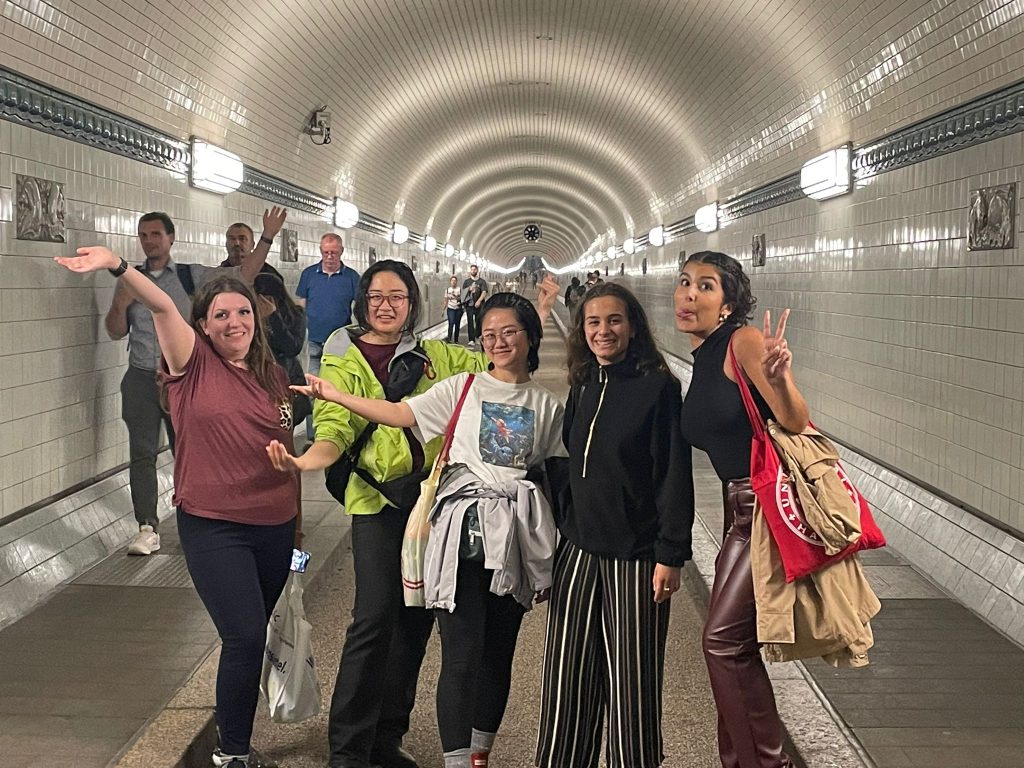Junyi Bu
September 14, 2023
In a bizarre road-rage interaction between the bus driver and a driver in a narrow intersection, I brace myself for the worst as the driver exits his car to grab something in the trunk, only to be perplexed to find out that he is grabbing a beer. The bus driver shakes his head and murmurs, “deutsch, deutsch – Germans, germans.”
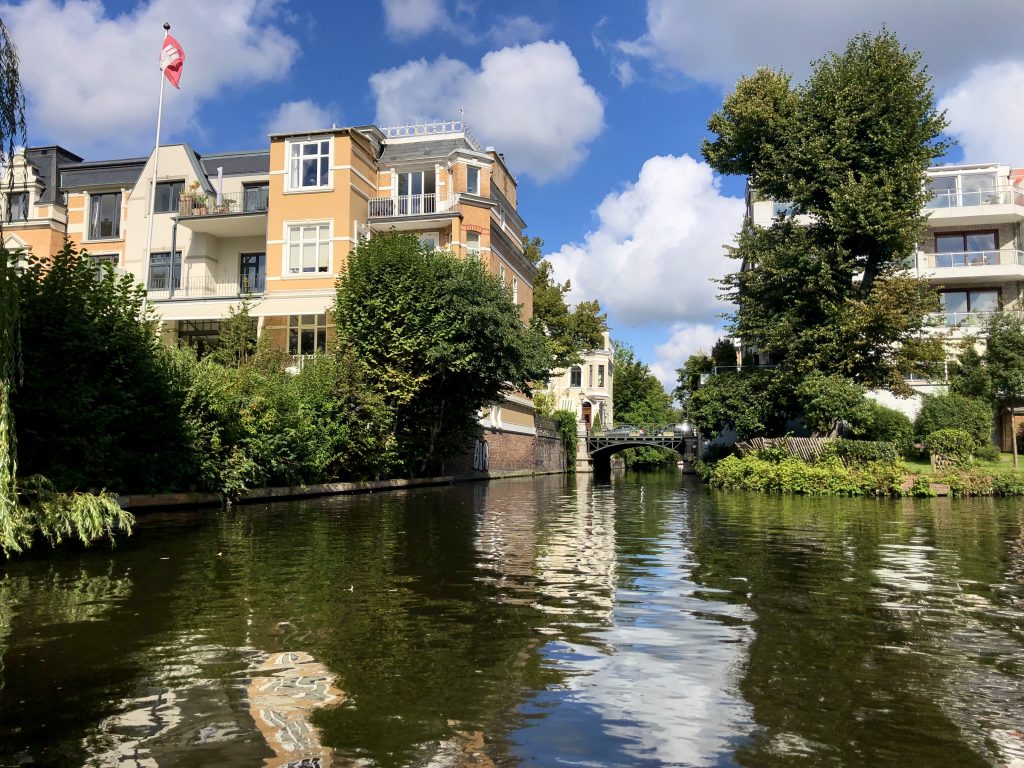
My time in Germany is off to a start.
When we arrived, our single room accommodation doubled as a living room, a kitchen, and a bedroom. Aware of the city’s constant presence through the cacophony of school kids yelling, cars grinding to a halt, and passing pedestrians, we begrudgingly settled in. Around us, everyone seemed to be going somewhere. Although we have since moved to a residence in the countryside, I draw a parallel of life in the busy inner-city room to what my mentor shares with me about the German school system. Everyone always seems to be going somewhere.
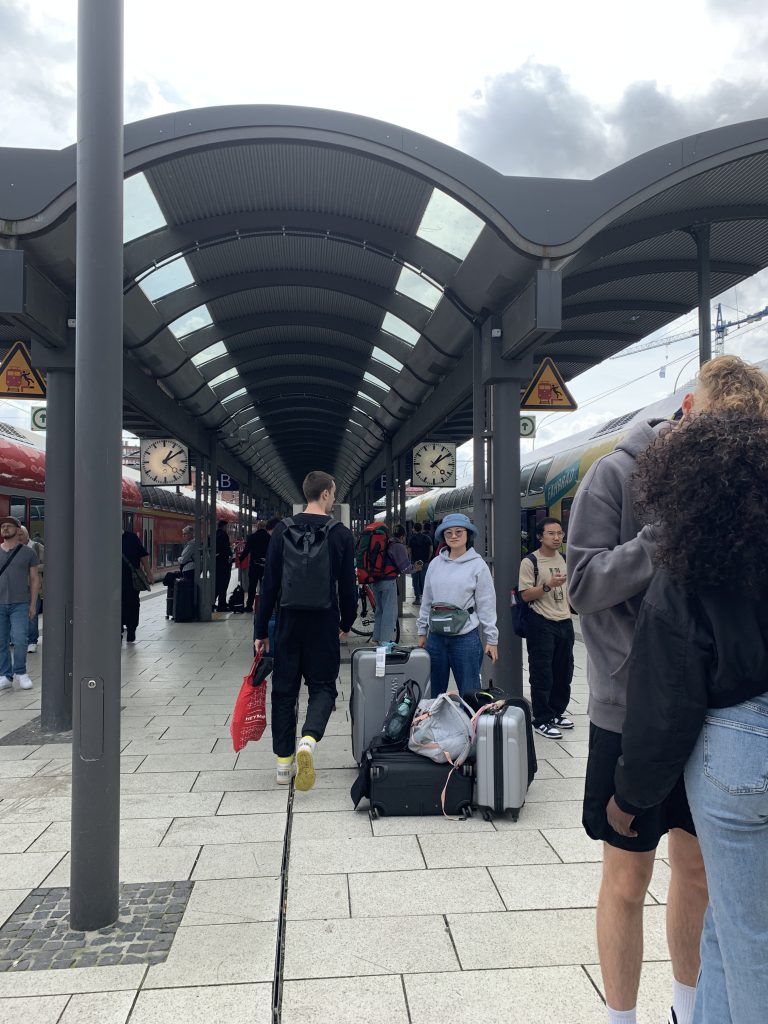
Students and teachers seem busier in German society, as evident in students’ punctuality. Due to the designation of students in junior high to either academic school or vocational school, I notice a palpable difference in energy from students in Canada. Students grouped in the gymnasiums (academic school) are intensely focused on achieving good results on their A-levels. As a result, less behavioural issues seem to crop up in the classroom. On my way home, I discuss this with my colleague: is it a matter of culture or because we are placed in an academic school?
Regardless, the students are curious about life in Canada: do we have many immigrants? why did we chose Hamburg? are the boys cuter here or there?
Academically inclined or not, a 17-year old really isn’t much different here or there.
On the first week, we visit several high school English classrooms and make agreements to plan lessons. The topics are standardized across grades and schools: crime and punishment, African-Americans, teenage years. Classes are small and interactive.
In second period art class, we plan frantically on the white board in the corner. We scribble a prototype of our lesson plan to show the teacher, in which she responds to with a smile. No words needed. In this moment, I’m thankful that our lessons are decipherable across languages. Despite our lack of German skills, we speak art to the students in hopes of finding mutual ground.
In our spare time, we find ourselves exploring medieval German towns and immerse ourselves in discussions with locals. In Luneburg, we strike up a conversation with the owner of the yellow-walled Nepali restaurant as we eat dhindo with our hands. She tells us that the buildings are cultural relics. “This building is three-hundred years old,” she informs me.
Her and her mother opened the restaurant after seeing a lack of Nepali cuisine in Luneburg. “We thought we’d give it a try,” she smiles. I thank her silently in my head – thank you for sharing your culture here.
I’m curious about the architecture. She explains that she is not allowed to change the colour or structure of the building, even if the walls start bulging outwards, like the “pregnant” houses down the street. We are directed to visit the Salzmuseum and we do; here, I learn about the history of Luneburg as a salt-brine mining town and take a tiny bag of salt home as a souvenir.
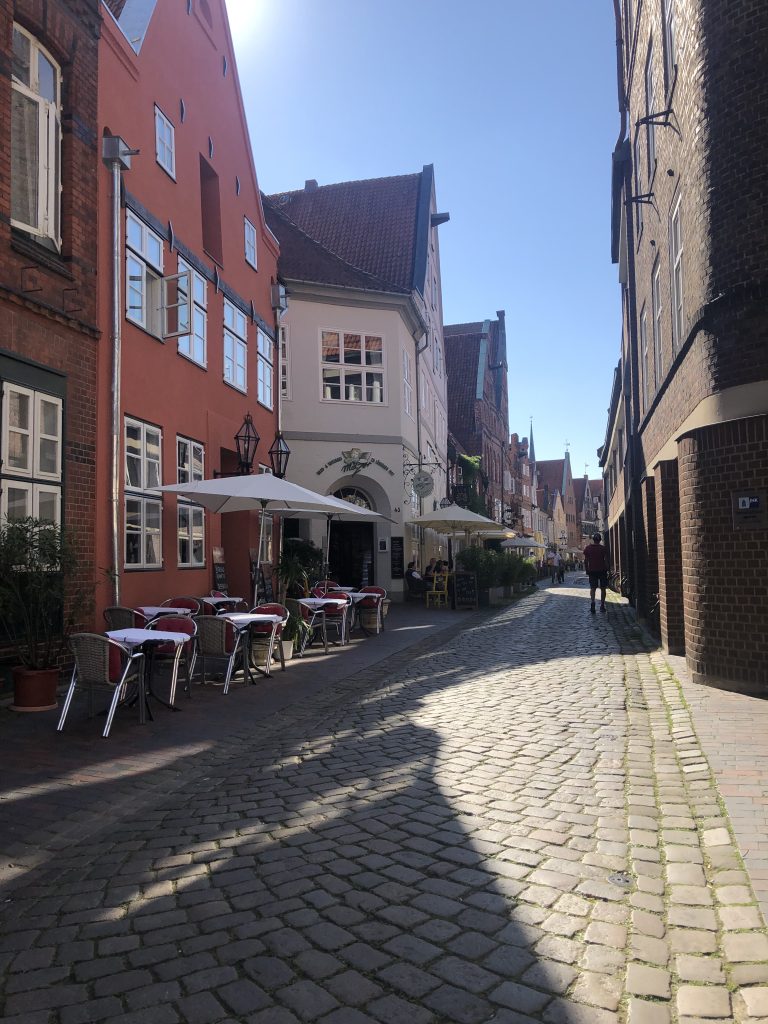
When we visit Lubeck, I’m underdressed for the cold. Jane takes me to an eerie medieval hospital – now open for public viewing. The place is lined with uncanny medieval relief sculptures and musty air permeates the narrow viewing hallway. We leave the hospital into the streets of Lubeck, which greets us with the ring of Sunday church bells and riverside fischbrotchen stalls.
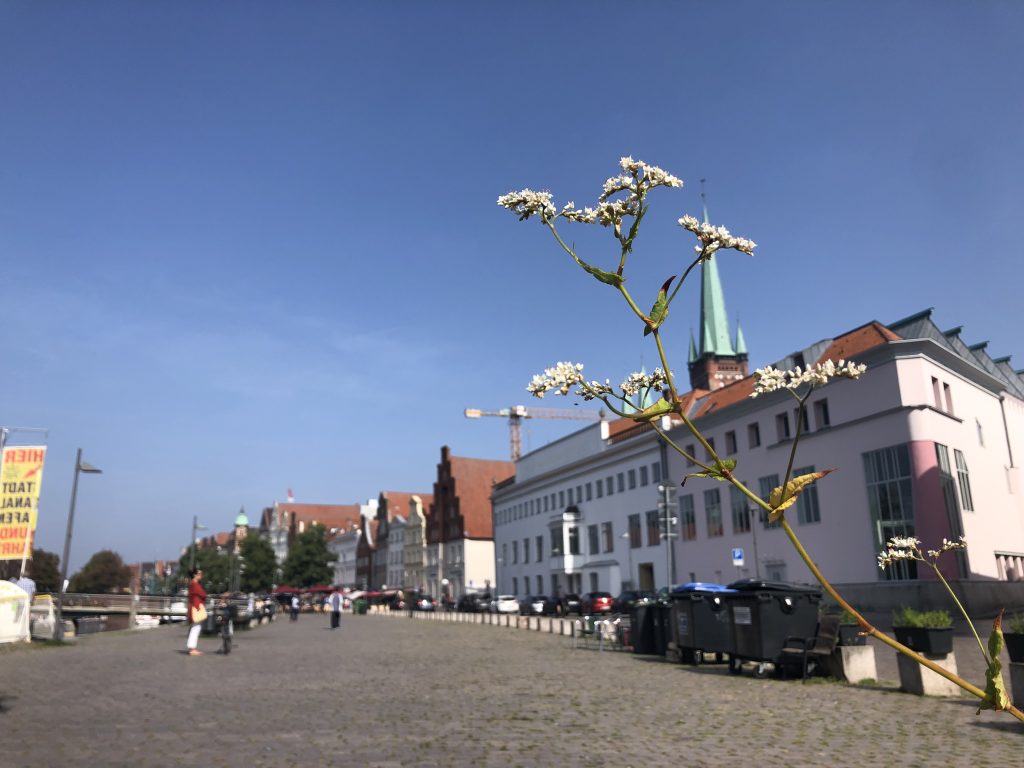
As I script this blog, my sinuses are exploding inside my head. Forced to miss the second week of school visits due to a travel-induced cold, I reflect upon my first two weeks away from home. Even through groggy fever hallucinations of home, I am remarkably thankful that I have the opportunity to experience life in a different country.
